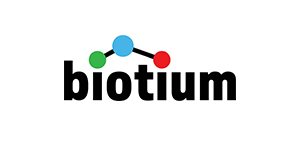CD29 (Stem Cell Marker)(12G10), 0.2mg/mL
CD29 (Stem Cell Marker)(12G10), 0.2mg/mL
Artikelnummer
BTMBNUB2905-100
Verpackungseinheit
100 uL
Hersteller
Biotium
Verfügbarkeit:
wird geladen...
Preis wird geladen...
Description: Recognizes CD29. Binds to the cell membrane of T- and B- lymphocytes, monocytes, platelets, fibroblasts, endothelial cells, mast cells and smooth muscle cells. CD29 is an adhesion receptor and co-stimulatory molecule. This antigen was initially characterized as GPIIa on platelets and as the common b1 subunit of the very late antigen (VLA) protein family. CD29 forms a non-covalent heterodimeric complex with integrin alpha subunits. It also mediates adhesion to invasion and thrombospondin. Primary antibodies are available purified, or with a selection of fluorescent CF® Dyes and other labels. CF® Dyes offer exceptional brightness and photostability. Note: Conjugates of blue fluorescent dyes like CF®405S and CF®405M are not recommended for detecting low abundance targets, because blue dyes have lower fluorescence and can give higher non-specific background than other dye colors.
Product Origin: Animal - Mus musculus (mouse), BSA from bovine serum (Bos taurus) or recombinant BSA produced in Chinese hamster ovary cells.
Conjugate: Purified, with BSA
Concentration: 0.2 mg/mL
Storage buffer: PBS, 0.05% BSA, 0.05% azide
Clone: 12G10
Immunogen: Purified human beta 1 integrin from HT1080 fibrosarcoma cell extract.
Antibody Reactivity: CD29
References: Note: References for this clone sold by other suppliers may be listed for expected applications.
Entrez Gene ID: 3688
Expected AB Applications: Flow, surface (published for clone)/Functional studies (published for clone)/IF (published for clone)/IP (published for clone)
Z-Antibody Applications: Flow, surface (published)/Functional studies (published)/IF (published)/IP (published)
Antibody Application Notes: Does not react with Mouse or Rat; ELISA: For coating use Ab at 1-5 ug/mL, order Ab without BSA; Optimal dilution for a specific application should be determined by user./Higher concentration may be required for direct detection using primary antibody conjugates than for indirect detection with secondary antibody
Product Origin: Animal - Mus musculus (mouse), BSA from bovine serum (Bos taurus) or recombinant BSA produced in Chinese hamster ovary cells.
Conjugate: Purified, with BSA
Concentration: 0.2 mg/mL
Storage buffer: PBS, 0.05% BSA, 0.05% azide
Clone: 12G10
Immunogen: Purified human beta 1 integrin from HT1080 fibrosarcoma cell extract.
Antibody Reactivity: CD29
References: Note: References for this clone sold by other suppliers may be listed for expected applications.
- FEBS Lett (1995) 363: 118-122. (functional studies)
- J Cell Sci (2005) 118: 4009-4016. (IP)
- Traffic (2012) 13: 610-625. (Flow, IF)
Entrez Gene ID: 3688
Expected AB Applications: Flow, surface (published for clone)/Functional studies (published for clone)/IF (published for clone)/IP (published for clone)
Z-Antibody Applications: Flow, surface (published)/Functional studies (published)/IF (published)/IP (published)
Antibody Application Notes: Does not react with Mouse or Rat; ELISA: For coating use Ab at 1-5 ug/mL, order Ab without BSA; Optimal dilution for a specific application should be determined by user./Higher concentration may be required for direct detection using primary antibody conjugates than for indirect detection with secondary antibody
| Artikelnummer | BTMBNUB2905-100 |
|---|---|
| Hersteller | Biotium |
| Hersteller Artikelnummer | BNUB2905-100 |
| Verpackungseinheit | 100 uL |
| Mengeneinheit | STK |
| Reaktivität | Human |
| Klonalität | Monoclonal |
| Methode | Immunofluorescence, Immunoprecipitation, Flow Cytometry, Functional Studies |
| Isotyp | IgG1 kappa |
| Wirt | Mouse |
| Konjugat | Unconjugated |
| Produktinformation (PDF) | Download |
| MSDS (PDF) | Download |

 English
English







